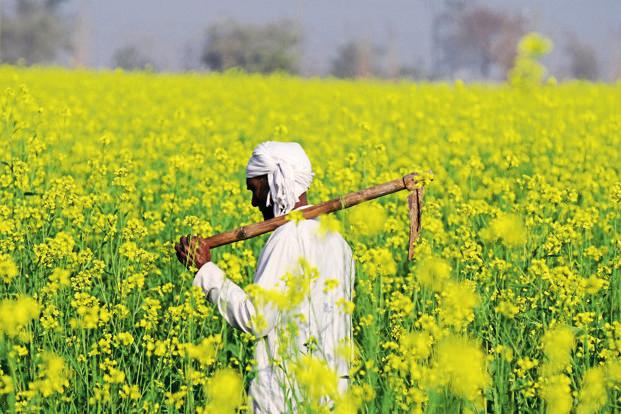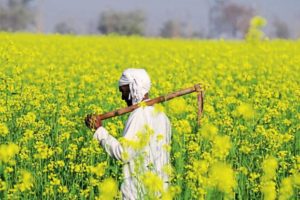The Supreme Court stayed the commercial release of the genetically modified (GM) variety of mustard till October 17 following a petition as this could have severe consequences on the environment and human health.
About GM Mustard :
Hybrid variety of a crop is obtained by crossing of two genetically diverse plants of same species and it can give higher yields than their parents. But mustard cannot be naturally hybridised because it is a self-pollinating plant having both male and female reproductive parts in a single flower. But researchers have created hybridised mustard using GM technology.
- The GM hybridised mustard, as it is claimed, gives up to 30% more yield than the present best varieties. Researchers have used “barnase / barstar” technology for genetic modification.
- A barnase gene is isolated from a soil bacterium called Bacillus amylolique faciens. The gene can code for a protein that impairs the pollen production in a plant making it male-sterile.

- This male-sterile variety is crossed with a parent variety having a gene called ‘barstar’ to block the action of barnase The resulting variety, having both foreign genes, is a fertile plant and it can increase yield of the crop.
- The GM mustard in question has been developed by Deepak Pental, a geneticist at the Delhi University, with support from the National Dairy Development Board and the Department of Biotechnology.
- The technology involves using a complex of genes, sourced from soil bacterium, which makes it easier for seed developers to easily develop hybrid varieties of mustard, generally a self pollinating plant.
- Hybrids varieties are generally known to produce greater yields but they necessitate farmers to keep going to seed companies every year to buy fresh seed.
- The main reason for its objection is in use of GM technology for hybridization involving use of alien genes. Though GM technology is already commercialized in India through Bt cotton, it is argued that cotton is not a food crop whereas mustard is largest edible oil yielding crop of India. Its introduction may adversely affect human and animal health.
- They also argue that the reason for increased imports of edible oils is because of reduction in import duties and that in turn discouraged domestic production by companies. It resulted in reduction of cultivation of the crop by farmers.
Court Stay :
The filed petition had sought a moratorium on open-field trials and commercial release of all herbicide-tolerant crops such as the Dhara Mustard Hybrid DMH 11 seed, earlier certified as safe for human consumption and the environment by a technical committee under the environment ministry and the court will now hear the case on October 17.
- It is noted that the technical committee, under the environment ministry’s Genetic Engineering Appraisal Committee, regulator for GM crops, had approved the environmental release of the hybrid DMH-11.
- GM Mustard had 759 public comments on the decision of the committee, after protests by several environmental and farmer bodies. The comments will be examined the same committee. Environment minister Anil Madhav Dave had on Thursday refused to fix a deadline by when the committee would give its findings.
- A Bench of Chief Justice T.S. Thakur and Justice A.M. Khanwilkar advocated the Centre would not commercially release the GM mustard crop till October 17 when it would hear the matter in detail.






